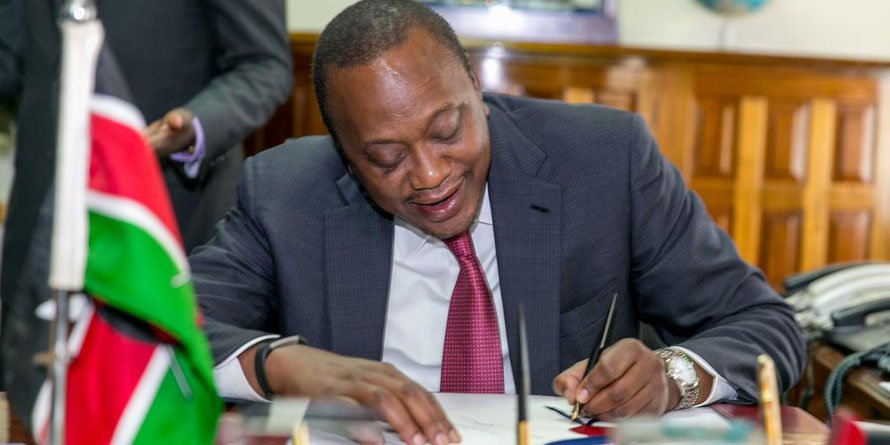
Kenya court suspends portions of new cybercrime law

A High Court judge in Kenya on Tuesday suspended sections of a controversial new law which had been contested by bloggers and rights groups who argued it would limit freedom of expression and freedom of the press.
The Computer Misuse and Cybercrimes Act was signed into law earlier this month by President Uhuru Kenyatta and was due to come into effect on Wednesday, but the court ruled that large sections should be suspended until the case is heard in July.
Justice John Mativo issued the directive Tuesday in a case in which Bloggers Association of Kenya sued the Attorney-General, the Speaker of the National Assembly, the Inspector-General of Police and the Director of Public Prosecution over the Computer Misuse and Cyber Crimes Act 2018.
The Kenya Union of Journalists and Article 19, a lobby that deals with freedom of expression and information, are listed as interested parties in the case.
According to the bloggers, the disputed law contains provisions which deny, infringe and threaten freedom of expression, media and persons besides the right to privacy, property and a fair hearing.
They said the millions of internet users are at risk of being arrested and prosecuted for unconstitutional offences.
In the case documents, the bloggers pointed out that a good number of Kenyans now draw their livelihood from content creation online and that there have been previous attempts by the government to clamp down freedom of expression in that platform.
They alleged that Section 29 of the Kenya Information and Communication Act and Section 194 of the penal code were the ones famously used to punish freedom of expression offenders.
The two laws touched on criminal defamation and were declared unconstitutional by the High Court in February last year.
The bloggers claimed that the cybercrime law which comes into effect Wednesday, seeks to reintroduce the purged laws while imposing harsher restrictions.
They alleged that in 2016, at least 60 bloggers were arrested for exercising their freedom of expression online while several journalists were silenced, intimidated, harassed or killed.
Meanwhile, in neighbouring Tanzania, media activists failed in their attempt to block a new law requiring bloggers to pay over nine hundred dollars for a licence.
Tanzania’s High Court ruled the petitioners had not shown how they were directly affected by the legislation.
The Media Council of Tanzania says it will go back to court and challenge the law again.






